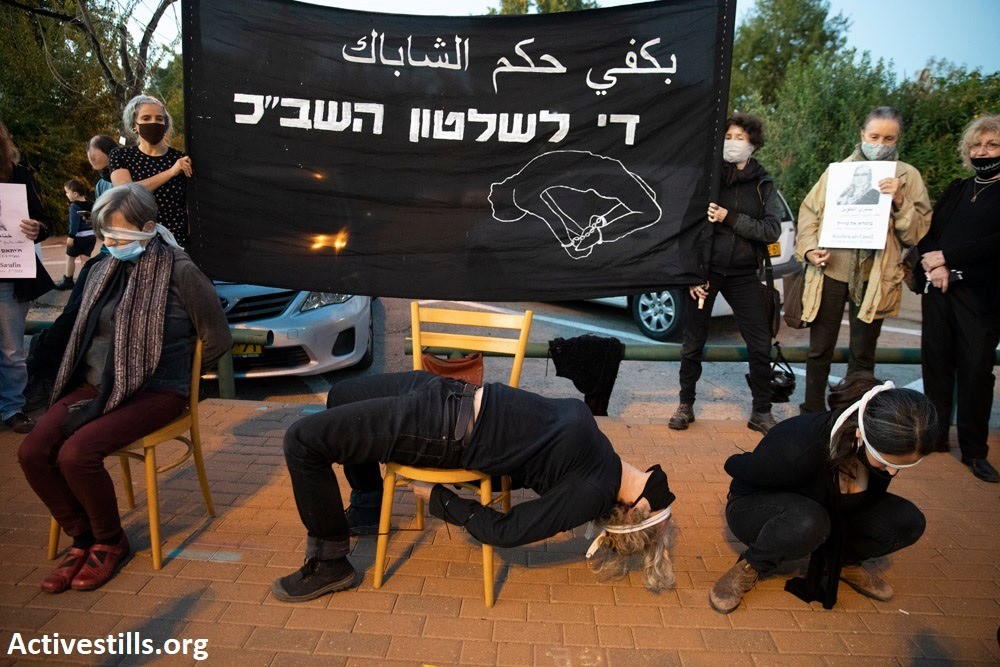The designated functions of Israel’s internal security service, the General Security Service’s (GSS, known also as the Shin Bet or “Shabak”) have nearly doubled since 2004, without any amending of the GSS Law by the Knesset and without informing the public, including even a majority of the Knesset lawmakers.
The Association for Civil Rights in Israel (ACRI) has submitted a petition to the High Court of Justice, stating that “extending the GSS powers behind closed doors to heights unknown threatens democracy, human rights, and is against the law.” The petition calls on the High Court to repeal the government’s decisions to expand the GSS’ functions from six to ten, in violation of the GSS Law. This expansion of powers, beyond what is designated in the law, was done in secret, without publication or public discussion.

Israeli activists mark International Human Rights Day by demonstrating in front of the Tel Aviv offices of Israel’s Internal Security Service (Shin Bet/Shabak) to protest political arrests of Palestinians, December 10, 2020. The black banner reads: “Enough of Shabak Rule.” (Photo: Activestills)
To expand the Shabak’s functions without public scrutiny and legislation, the government has relied on a dangerous loophole in the law defining the GSS that allows it to assign additional roles to the GSS. However, according to the GSS law, this loophole is valid only when there is an immediate and present danger, and even then only for a limited period of time.
Among the authorizations inappropriately given to the GSS using this emergency loophole was the organization’s involvement in contact-tracing during COVID-19 crisis. In April 2020, the High Court ruled on a number of petitions, including one submitted by ACRI, affirming that the loophole clause can only be utilized in the most extreme cases of immediate danger and for a limited period of time. Further, the High Court ruled that, in order for the GSS to track civilians, the process must be legislated and cannot be authorized exclusively by a government decision.
According to the ACRI, “It is now apparent that that the flexibility of the law has been exploited by the government for a permanent expansion of the GSS’s functions and powers, while bypassing the Knesset. The GSS has the potential to seriously violate human rights, including the possibility of wiretapping, online surveillance, investigations, and more. Extending the GSS powers behind closed doors to heights unknown threatens democracy, human rights, and is against the law.”


